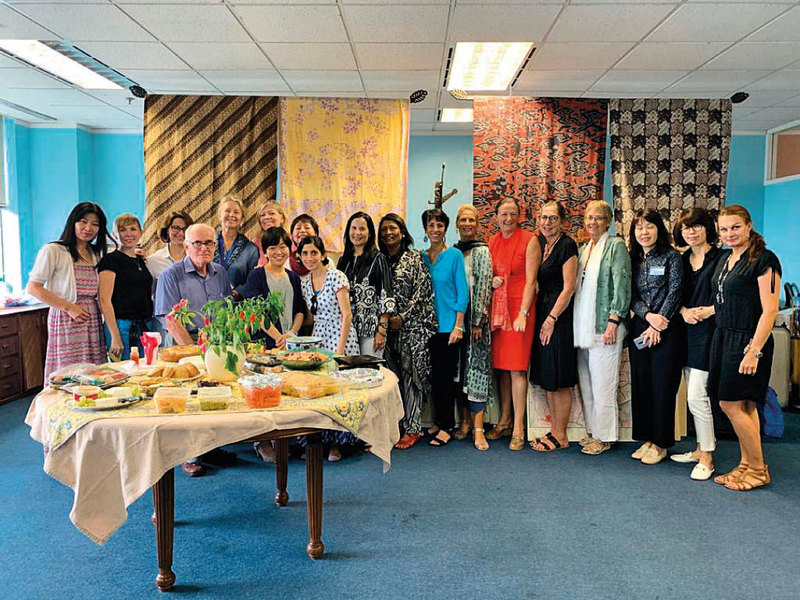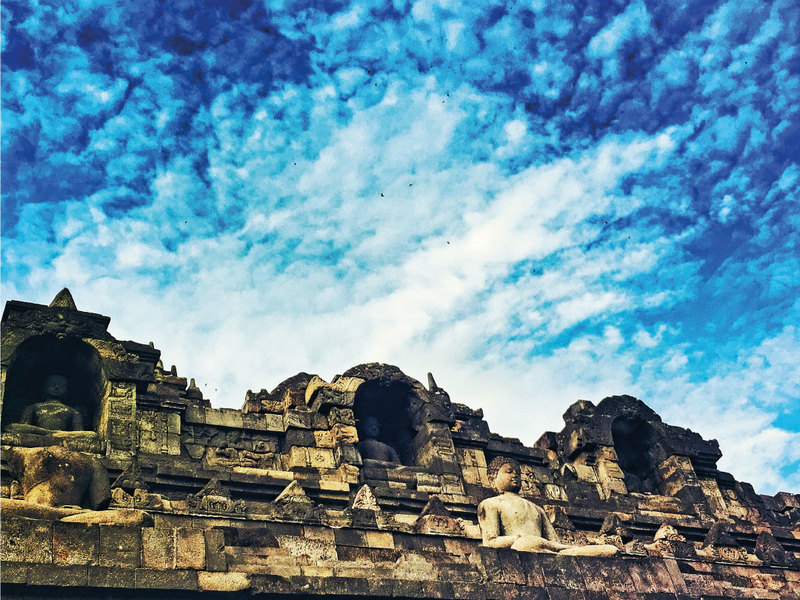
When my husband told me that we would be relocated to Jakarta nearly a decade ago, I just couldn’t imagine what kind of life it would be like.
At that time, I was working as a Japanese and English interpreter at an American company based in Tokyo. Becoming an interpreter was my dream job since I was a child, and I loved it. While debating with myself whether to stay in Tokyo or accompany my husband, we found out that I was pregnant. Not being able to imagine raising my child without him, I chose to start a life as an expat’s wife. We arrived in Jakarta with my three-month-old daughter in November 2012. Everything was new to me and not everything was easy. But, I gradually adjusted myself to our new life in Jakarta.
After staying in Jakarta for several months, I realized that it is very common for Japanese expatriate wives, like me, to be confined within Japanese community despite the city’s international culture. Although I loved the supportive Japanese community, I started to feel like something was missing. I eventually found out that the so-called “life of an expat’s wife” in Jakarta would never fully satisfy me. Having various working experiences in a busy international environment in Tokyo, the loss of social contact with an international and professional community mattered a lot to me.
This was the reason why I started to look for something to improve the quality of my life in Jakarta. I constantly looked and searched everywhere until I found a fulfilling result, which was the Indonesian Heritage Society (IHS). I thought that it would offer me everything I needed. It is a non-profit organization where members from various backgrounds get together to learn about cultural heritage of Indonesia.
In the first year of my enrollment, I joined one of the study groups to learn general history and cultures of the country. As one of the group activities, I chose to present about Borobudur Temple as I was very curious about the reason why and how the largest Buddhist monument in Indonesia existed in a place where the majority are Muslim. Through my research, I found the history of Buddhism in Indonesia fascinating. What struck me most was the peaceful coexistence of Shailendra, a Buddhist dynasty and Sanjaya, a Hindu dynasty. Its history characterized by harmonious coexistence of different religions significantly deepened my curiosity towards learning more about the country. Eventually, I decided to join the Museum Guide Training Course, offered by IHS. Since my original interest was Borobudur, throughout the training course, I got excited to learn about Buddhist history and artifacts displayed in the museum.

Buddhism was brought to Indonesia around the first century by Indian travelers who came through the maritime Silk Road route. The teachings taught by Syakamuni Buddha became most prevalent in Indonesia during the reign of Srivijaya dynasty. Yijing, a prominent Chinese Buddhist monk and translator, who visited Indonesia had great impact on Srivijaya dynasty in the 7th century. He noted that it was the largest Buddhist kingdom in Southeast Asia, hosting more than one thousand Buddhist monks. Yijin’s records shows that the dynasty never forced Buddhism while expanding its reign to Hindu rivals. This harmonious feature of Buddhist dynasties such as Srivijaya and Shailendra was succeeded to the Hindu-Buddhist Majapahit dynasty of 14th century. To my delight, the Museum Nasional displays several Buddhist objects from these dynasties such as a bronze statue of Bodhisattva Avalokitesvara and stone statues of Buddha from Borobudur Monument.
Even now that Islam has become the dominant religion, people of Indonesia have the capacity to respect other belief systems as symbolized by the official national motto of Indonesia, Bhinneka Tunggal Ika, which is translated as “Unity in Diversity”. According to former President Abdurrahman Wahid, this beautiful philosophy was brought back in many centuries ago by the Buddhist tradition which emphasizes respect towards diversity.
Now that I have completed the training course, I can tell you that this was what I was looking for. Through the organization, not only have I gained knowledge about Indonesia, but have also met many like-minded friends from different backgrounds. All of them are eager to learn from each other and cultivate possibility. I always find something new even by having a simple conversation with them. Their insights and knowledge inspire me to learn and grow. Looking back, I am a hundred percent sure that joining IHS was the best choice I have ever made and it has become the turning point of my life.







